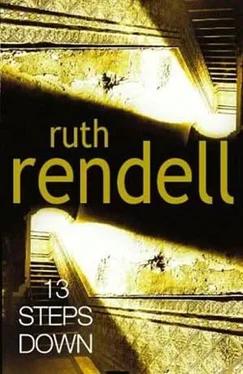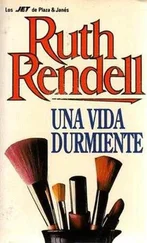Cars were as usual parked nose to tail all along the residents' parking in St. Blaise Avenue, and he noticed what he had had no need to notice before. One of them, an ancient Volvo, had a For Sale sign in its windscreen and underneath, the price: £300. Volvos were good cars, supposed to last for years, and this one appeared quite well cared for. He was walking roundi t, looking in the windows, when a woman emerged from one of the houses on the St. Blaise House side and came up to him.
"Are you interested?"
Mix said he didn't know, he might be. Though no longer young, she was quite good-looking with the kind of hourglass figure he liked.
"It's my husband's. We're called Brunswick-Brian and Sue Brunswick. Brian's away but he'll be back on Wednesday. He'd go with you on a trial run if you'd like.”
"You're not a driver yourself?" He wouldn't have minded going on any sort of trial run with her.
"I'm afraid it's years since I was at the wheel of a car."
"Shame," said Mix. "I'll think about it."
Padding across the hallway in St. Blaise House, his hand pressed to the small of his back, he noticed that the drawin groom door was ajar and he peered in. Old Chawcer was lyingo n the sofa fast asleep. He began to climb the stairs. Though cold in comparison to what it had been, the weather was brighter and the sun had come out. Sunbeams striking the walls of the stairwell showed up every crack, hairline as well as wide, the flyspots on the crookedly hung pictures and the flies that had got in between the print and the glass and died there, the cobwebs that clung to frames and cords and light fittings. He wondered where Reggie's ghost went in the daytime and told himself no tto think about it unless he had to. The pain in his lumba rregion sharpened. If it didn't improve he'd have to go to the doctor.
The first thing Gwendolen thought of when she woke up was Mr. Singh's revelation. Mr. Singh htmself was not for her and she knew it, while Stephen Reeves was. Momentarily she had been carried away by his looks and his charm but, anyway, she didn't approve of cross-cultural marriages-miscegenation,they had called it when she was young-and the wife was a considerable stumbling block. The unknown and unseen Mrs. Singh she dismissed as a "tottering native woman in a veil." What Mr. Singh had told her now excluded almost everything else from her mind.
While she was absent, and not only absent but ill in the hospital,that man, that lodger, had been in her garden, twice been there, and dug holes in the flowerbeds. Once upon a time, in the days of Chawcer prosperity, a real gardener had attended to horticultural matters, the beds had blossomed with lupins and delphiniums, zinnias and dahlias, the shrubs had been trimmedand the lawn mown to a velvet carpetlike texture. To some extentGwendolen saw it like that still, or she saw it as allowed togrow a little shabby, but nothing that a handyman and a lawnmower wouldn't set to rights in an hour or so. And into this small paradise the lodger had ventured with a spade-almost certainly her spade-and dug holes. He had gone into the garden and dug holes without her permission, without even attemptingto get her permission, and in order to do so musthave passed though her kitchen, her washhouse, probably depositing the thing in the copper on his way. Why had he? To bury something, of course. Possibly, no, probably, he had stolen something of hers, something valuable, and buried it out there until he could find a receiver of stolen goods. She would have to go all over the house, finding out what was missing. Rage returned, banging in her blood vessels. It was no wonder that, now she was wide awake, she felt distinctly strange, her head swimming and her body very weak.
For all that, she would very likely have attempted the stairs,taking them slowly and with rests at every landing, but for Queenie "Winthrop arriving as she was making up her mind. She heard the door open, hoped it might be the lodger to save her climbing fifty-two stairs, and had her hopes dashed by Queenie's voice calling, "Yoo-hoo, it's only me."
Gwendolen wondered how long they were going to keepthis up, she and Olive, calling on her with presents every day.For weeks perhaps, for months. Forever? She didn't want anymore chocolates, cereal bars, pears, or grapes. The bottle of port Queenie took out of her shopping trolley was far more acceptable and Gwendolen, cheering up, actually thanked her friend.
"I hope I'm not becoming an alcoholic," she said. "I'm sure I would if you and Olive had your way. Of course it's my lodger who has driven me to it. I never used to drink anything stronger than orange juice."
She had been going to tell Queenie about the encounter with Mr. Singh and what he had unwittingly revealed to her. But somehow she didn't want to discuss her neighbor withQueenie or anyone else and she couldn't describe the lodger'scrimes without involving Mr. Singh. Instead she said, "I really don't like to ask. It's something of an imposition. But could youbring yourself to go upstairs and knock on his door and tell himI would like to see him this evening at six? Please," she said,though it went against the grain. "I have several matters I mus tbring up with him."
"Well, dear, I will if you don't mind waiting a bit. I've still got to catch my breath after walking all the way here. I waited and waited for a bus but it never came. I'll go up before I go. I promise. Now shall I get you something to eat?" Queenie looked longingly at the bottle. "Or a drink?"
"Ye could both have a small glass of port."
"We could, couldn't we? After all, it's Sunday."
"Surely it's communion wine one drinks on a Sunday,not port."
"Possibly, dear, but not being a churchgoer I wouldn't know.Shall I be mother?"
Gwendolen shuddered. "It's fortified wine, Queenie,not tea."
She thought this habit of bringing a present to a sick friend and then expecting to share it, deplorable. But even a lifetime of rudeness hadn't taught her to drink exclusively in front of someone else. She watched Queenie pouring measures she considered too liberal into the wrong sort of glasses, raised hers and said what the professor used to say in like circumstances,"Your health!"
A snack of cheese and biscuits, fruit, and a slice each of the carrot cake, an offering from Queenie's elder daughter, was eaten off trays laid with ancient yellowing lace-trimmed cloths found in a sideboard drawer. "You look as if you might drop off to sleep at any moment," Queenie said.
"The thing isn't the only matter I have to complain to the lodger about," said Gwendolen as if she hadn't spoken. "I was expecting a very important letter while I was in hospital. It should have come here and apparently it didn't." She had nointention of disclosing much about the nature of this letter orits sender to Queenie. "I suspect Cellini of tampering with it. "She had long dropped the "Mr." "Unless you or Olive havebeen interfering with my post, which," she added in a moreconciliatory tone, "seems unlikely."
"Of course we didn't, dear. Where would this letter have come from?"
"The postmark would probably be Oxford. And now I really do want to sleep so perhaps you'd go upstairs to the lodger. Sixo'clock he's to present himself."
Queenie lumbered up the stairs, looking longingly at the telephone as she passed it. But she would only have had to lift the receiver for Gwendolen to hear it and be down upon her like a ton of bricks. For all her seniority, Gwendolen had bette rhearing than she had. On the first landing she removed her punishing high-heeled shoes and, taking deep breaths, struggledon, shoes in hand. If he wasn't in she'd have something tosay to Gwendolen. Her friend needn't think she had a prerogativein rudeness. Two could play at that game.
He was in. He came to the door with a cardigan tied roundhis shoulders and his feet bare. "Oh, hi. What is it?"
Читать дальше











